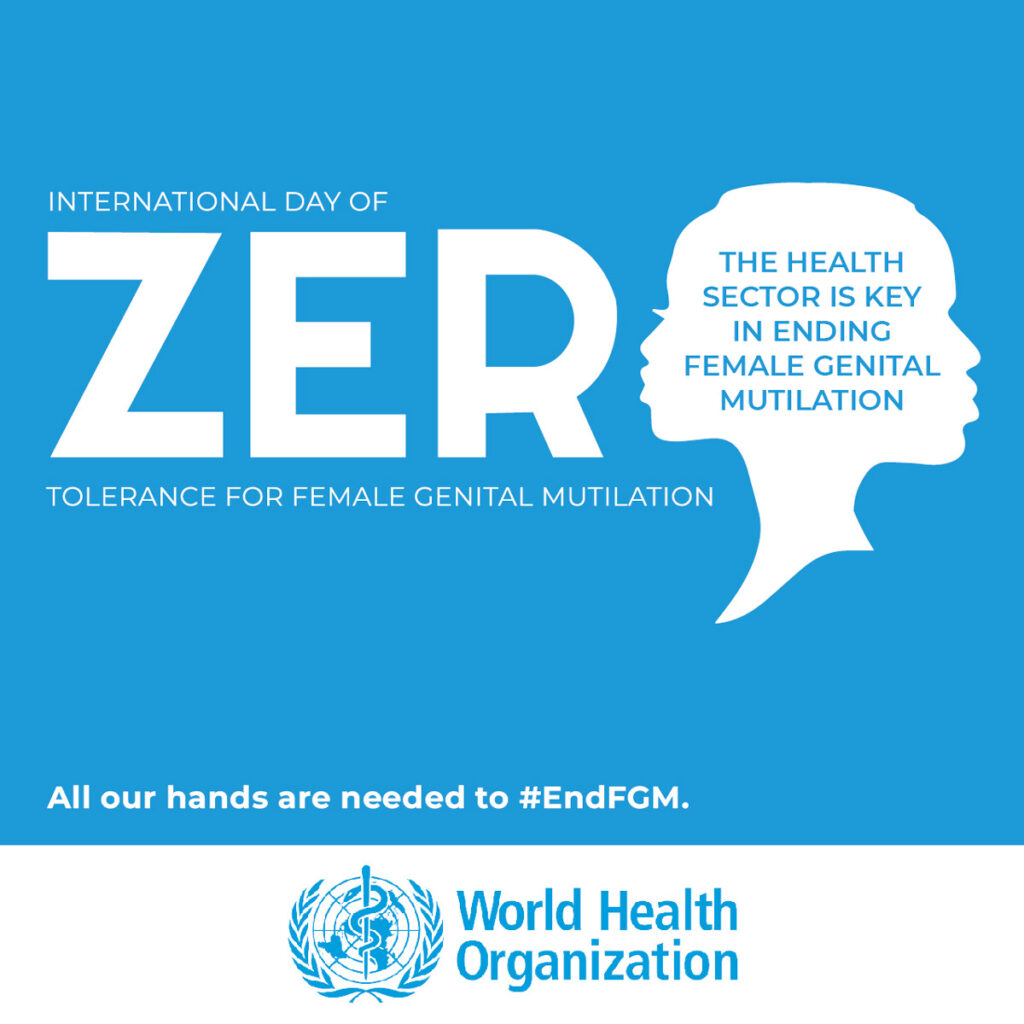On February 6 International Day of Zero Tolerance for FGM midwife Jenny Rose Viera writes of her hope that midwifery educators partner with survivors to include more comprehensive training on FGM in midwifery courses and what practicing midwives can do to better support FGM survivors in their care.
Globally, over 200 million girls and women are estimated to have undergone female genital mutilation (FGM), with three million girls at risk every year. In the UK alone, 137,000 survivors are currently living with the consequences of FGM, and up to 60,000 girls under 15 remain at risk annually.
FGM is not just a one-time event; it is an act of extreme violence that condemns survivors to a lifetime of re-traumatisation. It impacts every aspect of a woman’s health—from urination to menstruation, to sexual intimacy, pregnancy, and birth. Survivors often experience chronic pain, PTSD, and deep mistrust in healthcare services. Trauma is isolated by nature.
As a profession, we must break the barriers that prevent midwives from being empowered to care for survivors and that keep survivors from trusting the healthcare community to hold their stories and help them heal. This work should not be siloed to FGM specialist midwives; every midwife should be equipped to care for FGM survivors with competence, empathy, and professionalism. To this end, we must integrate evidence-based, survivor-led FGM training into midwifery education nationwide.
I recently spoke to Adama Sesay, a newly qualified midwife who shared that her midwifery course barely covered FGM. She said there were no detailed lectures on its anatomical effects and how it impacts women’s health, or how to support survivors emotionally. Speaking of more experience midwives she felt that while they were aware of how to make a referral to a specialist FGM midwife. Many had not received adequate training and felt unprepared to deal with women who had undergone FGM.
I believe that the United Nations Sustainable Development Goal (SDG) of achieving gender equality by 2030 cannot be met while FGM persists. Legal frameworks alone are not enough. As a midwifery profession, we are still falling short in providing compassionate, informed, and survivor-centered care for those affected. Many survivors feel invisible in our healthcare system, struggling to find professionals who understand their experiences and needs.
Hibo Wardere, an FGM survivor, activist, is the Educational Lead for Educate Not Mutilate (ENM). In 2024, her organisation trained more than 1,400 midwifery students and 1,200 healthcare professionals across the UK. Hibo says she feels “there is block – a fear factor. Many midwives worry about getting it wrong, being seen as intrusive or culturally insensitive.”
Ending FGM requires political will and survivor leadership and today, on International Zero Tolerance Day, I call on policy-makers to ensure FGM training is mandatory, standardised, and evidence-based across all healthcare institutions. To practicing midwives I call on you to seek out FGM training opportunities, challenge stigma, and build trust with survivors. For midwifery educators I’d like to see more of you partner with survivors and activists like Hibo Wardere to co-produce FGM education that is human-centered, and survivor-informed. Let’s commit to ensuring that no midwife enters practice without the knowledge and confidence to support women affected by FGM.
The RCM have developed an FGM i-learn module for members which looks at how to identify FGM, communicate effectively and sensitively whilst caring for women and girls who have had FGM. This module also considers how to prevent FGM being practised in the future. You can access the FGM module here.



